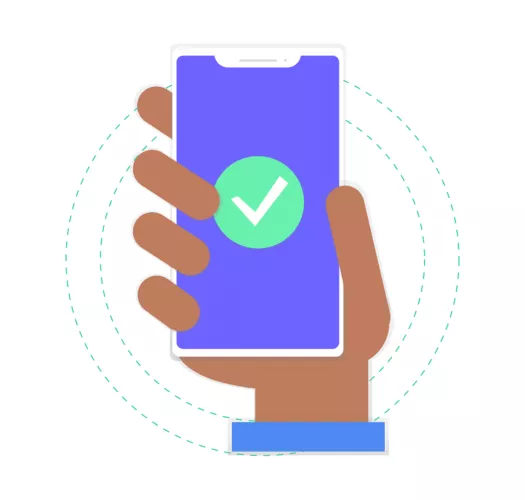Before we go to lead routing, I want to tell you a story. A study actually, which tells something about the human brain, which is related to lead routing and response time.
Antonio Damasio, a famous neuroscientist studied people with the injury in the frontal lobe where we feel emotions. Apart from not feeling emotions, they seemed normal. But they were not able to make even simple decisions, such as what to eat – Chicken or a Turkey?

What does it mean?
Decision-making is purely emotional but, we try to back it up with logic. Try to remember this, as we will come back to it later. Ok, lead routing now.
What is lead routing?
Lead routing is a process of distributing incoming leads among sales reps. It is also known as lead assignment. Usually, lead routing is an automated process, and CRM software distributes the leads to salespeople on the basis of zip code, the product of interest, lead score, availability of the sales reps, or any other criteria relevant to the business.
When you have a large sales team, especially on the field or multi-center ones, several leads are lost in transition or not followed up instantly.
Automatic lead routing software reduces the response time, and a salesperson gets an instant notification on their email and mobile when the lead arrives. It thus makes it possible for salespeople to respond to the inquiry quickly. Otherwise, by doing it manually, sales reps end up wasting time finding details in spreadsheets, contacting them, and adding notes.

Now, coming back to the decision-making. We know that decision-making is emotional, and once the salesperson has made an emotional connection with the lead, it is tough to backpedal. Quick response time is crucial to building a connection with the prospect. Not saying that whoever follows up the first will crack the deal, but it definitely gives the edge.
Faster lead routing = Faster followup = Better relationship
How does lead routing software work?
A good inquiry routing software allows a business to route leads to the sales team automatically. The first step is to capture the leads from all the sources, such as website, phone, email, chat, events, social media, and others (depending on your marketing reach and strategy).
The next step is to check the lead’s parameters and score and allocate leads through a predetermined logic. For example-
- If the lead country is the United States, route it to the USA team. If not, route it to the India call center.
- If the zip code is 52402, route it to Cedar Rapids.
- If the city is Philadelphia, route it to the eastern zone call center.
- If the lead score > 50, override everything and assign it to Andy (salesman).
Similarly, you can create your own logic and set up your lead allocation process. Lead routing and scoring mechanisms make it extremely easy for the sales teams to identify qualified leads and follow-up accordingly. Let me tell you some more benefits of a lead routing system.
Benefits of using a lead routing solution
Through an efficient lead routing system in place, you can ensure that the leads are distributed equally among the sales reps. Thus, none of the sales rep is over-burdened, and the leads/inquiries are followed-up in time. The following are the key benefits of using routing software:
- Assign scores: The system assign scores to the lead during the time of lead capture. For example, the system assigns a higher score to the person who visits the pricing page (because this shows a higher buying intent) and a lower score to a person who has read a blog article.
- Distribute leads: Track and distribute leads between your teams based on requirements or other dynamic criteria.
- Score engagement: Score a lead’s engagement in real-time based on actions they take. For example, website visits, email opens, link clicks, inquiries, etc.
- Automatic reassignment: If a sales rep fails to follow-up with a lead, the system automatically reassigns the lead to a different representative after waiting for a certain period.
- Custom routing logic: The software allows you to create your lead assignment rules to match lead with the right sales rep. Depending on your business, you can also define complex routing rules that may involve several other business parameters.
Some routing software also allows integration with dialers/cloud calling solutions. With this, salespeople can call the leads from the routing software itself. This way, they save time and can work more productively.

If you have a large sales team and tired of using complicated and clunky tools for routing leads, you can try LeadSquared free for 14 days to see how easy it is to create a kickass lead routing logic in minutes. I promise you’ll love it.
FAQs
u003cstrongu003eWhat is a lead router?u003c/strongu003e
A lead router is a feature of u003ca target=u0022_blanku0022 href=u0022https://www.leadsquared.com/crm-software/u0022 rel=u0022noreferrer noopeneru0022u003eCRM softwareu003c/au003e or a lead management system that lets you automatically distribute leads to the sales reps based on location, availability of the sales rep, lead score, product interested, and other predefined criteria.
u003cstrongu003eWhat are the benefits of a lead routing system?u003c/strongu003e
A lead routing system automatically filters leads, helps prioritize sales-ready leads, and assigns them to the sales reps for follow-ups.
u003cstrongu003eHow do you allocate leads?u003c/strongu003e
If you use a u003ca target=u0022_blanku0022 href=u0022https://www.leadsquared.com/lead-management-system/u0022 rel=u0022noreferrer noopeneru0022u003elead management systemu003c/au003e or CRM software, you can automatically allocate leads to the salespeople in a round-robin manner. The system also allows you to define rules and assign leads based on location/zip-code, products interested, availability u0026amp; expertise of the sales reps, etc.









